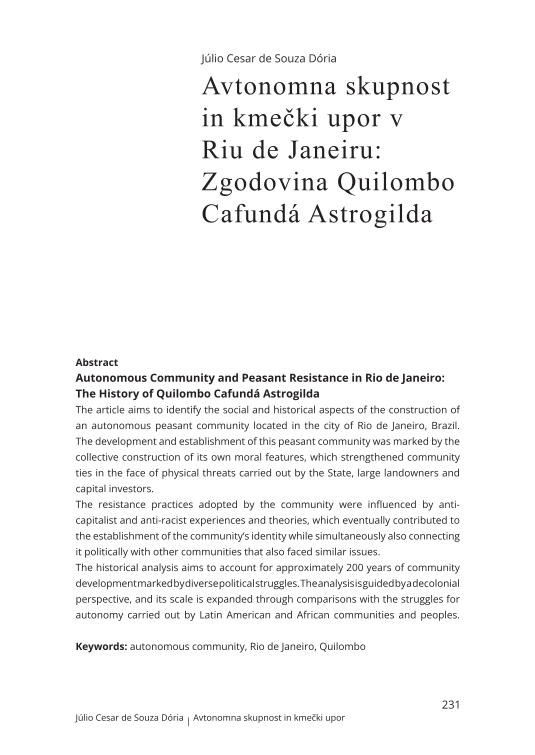The article aims to identify the social and historical aspects of the construction of an autonomous peasant community located in the city of Rio de Janeiro, Brazil. The development and establishment of this peasant community was marked by the collective construction of its own moral features, which strengthened community ties in the face of physical threats carried out by the State, large landowners and capital investors.
The resistance practices adopted by the community were influenced by anti-capitalist and anti-racist experiences and theories, which eventually contributed to the establishment of the community’s identity while simultaneously also connecting it politically with other communities that also faced similar issues.
The historical analysis aims to account for approximately 200 years of community development marked by diverse political struggles. The analysis is guided by a decolonial perspective, and its scale is expanded through comparisons with the struggles for autonomy carried out by Latin American and African communities and peoples.




